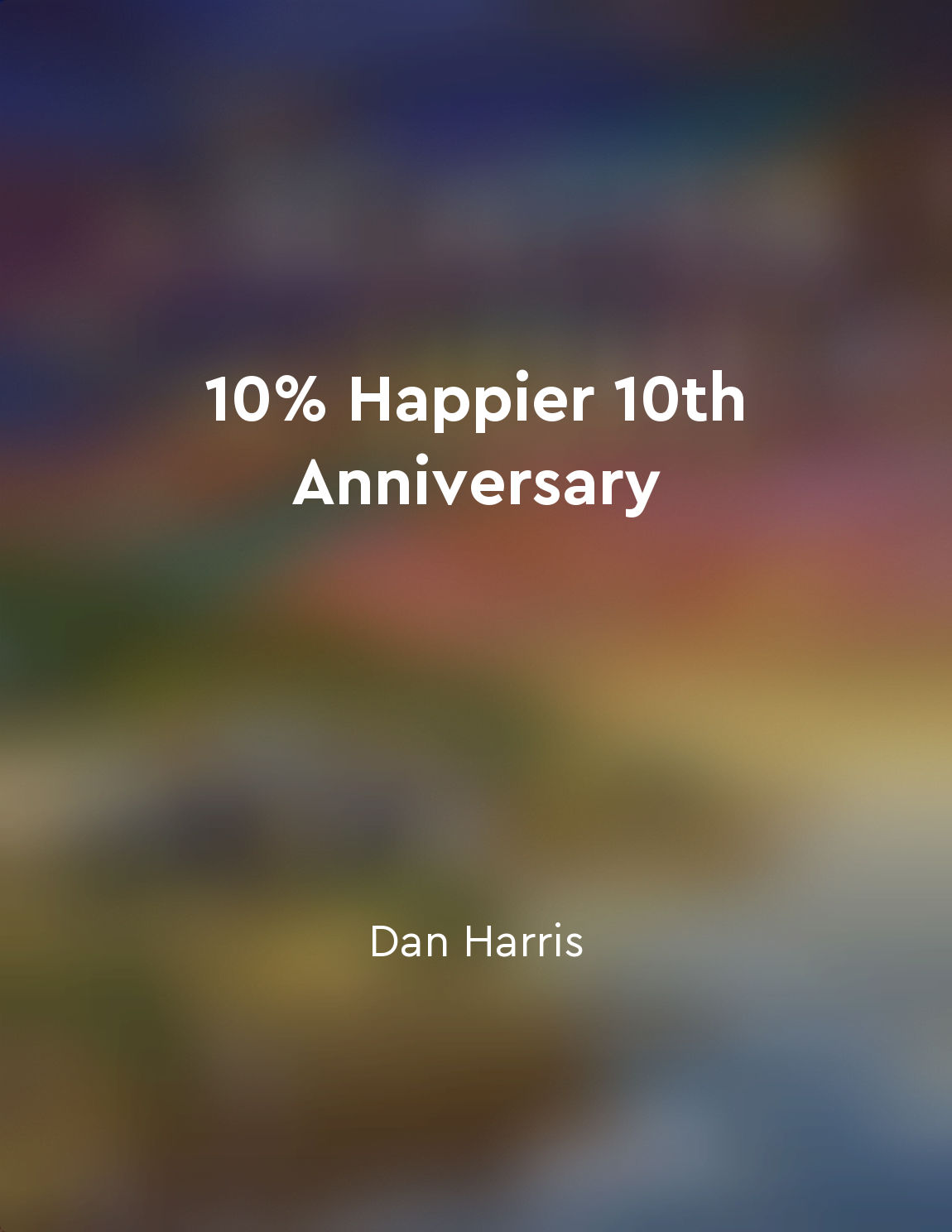Audio available in app
Learning to respond rather than react can break the anxiety cycle from "summary" of Unwinding Anxiety by Judson Brewer
When faced with anxiety-provoking situations, our initial instinct is often to react impulsively. This knee-jerk reaction is driven by our brain's habit loop, which is designed to seek immediate relief from discomfort. However, this reactive response only serves to perpetuate the anxiety cycle, keeping us trapped in a cycle of fear and worry. To break free from this pattern, we must learn to pause and respond mindfully instead of reacting automatically. By taking a moment to observe our thoughts, emotions, and physical sensations without judgment, we can gain a deeper understanding of the triggers that fuel our anxiety. This awareness allows us to choose a more intentional and skillful response, rather than letting our habits dictate our actions. Responding mindfully to anxiety involves cultivating a sense of curiosity and openness towards our experience. Instead of trying to suppress or avoid our anxious thoughts and feelings, we can investigate them with a spirit of inquiry, seeking to uncover the underlying causes of our distress. This process of self-inquiry can help us develop greater self-awareness and insight, enabling us to address the root of our anxiety more effectively. As we practice responding mindfully to anxiety, we begin to weaken the grip of our habitual reactions and create space for new, healthier patterns to emerge. This shift from reactive to responsive behavior can be transformative, breaking the cycle of anxiety and opening up new possibilities for growth and healing. By learning to respond with awareness and compassion, we can cultivate greater resilience and inner peace in the face of life's challenges.Similar Posts

The benefits of meditation may not be immediately apparent but will manifest over time
Meditation is not a quick fix. It’s not a magic pill. It’s more like a long-term investment in your own well-being. When you st...

Stay present and avoid dwelling on the past or future
The key to overcoming anxiety is to stay present. When you focus on the past or worry about the future, you are not living in t...
Chronic illness can be a result of unresolved emotional issues
Gabor Maté delves into the intricate relationship between emotional experiences and physical health in his book 'When the Body ...
The body scan meditation helps individuals connect with their bodies
The body scan meditation is a powerful tool for cultivating mindfulness and awareness of our bodies. By systematically bringing...
Anxiety is a natural response to stress
Anxiety is a natural response to stress. When we experience stress, our bodies and minds react in a way that is designed to pro...
The relaxation response counteracts the stress response
In our fast-paced modern society, stress has become a common and often debilitating issue for many individuals. The stress resp...
A daily mindfulness practice can bring about lasting positive changes
A daily mindfulness practice has the power to transform our lives in profound ways. By cultivating awareness of our thoughts, f...
Recognize when anxiety triggers are present
When anxiety triggers are present, it can feel like they appear out of nowhere, catching us off guard and causing a sudden surg...
Frustration is a common emotion in both personal and professional settings
Frustration is something that we all experience at some point in our lives, whether it be in our personal relationships or in o...
